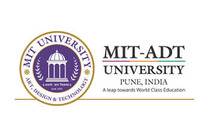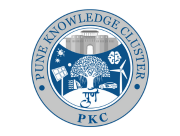Overview
The Pune Wastewater Surveillance (WWS) project is part of a National consortium focused on tracking and identification of new COVID-19 variants. The project is funded by the Rockefeller Foundation and was initiated in August of 2021. As of January 2022, the project has been expanded to other viral pathogens, namely H1N1, H3N2 and Influenza-A. The Pune Knowledge Cluster (PKC) brought together a group of collaborators to track COVID-19, H1N1, H3N2 and Influenza-A through WWS. Our group consists of:
● Research Partners – CSIR-National Chemical Laboratory (NCL), Symbiosis School of Biological Sciences (SSBS), and the Indian Institute Science Education and Research (IISER) Pune
● Stakeholders – Pune Municipal Corporation (PMC) and Pimpri-Chinchwad Municipal Corporation (PCMC)
● Sample Acquisition Partners – Ecosan Services Foundation and Fluid Robotics
Clinical diagnosis of COVID-19 is typically determined by the detection of acute infection targets in the genome of SARS-CoV-2 present in nasopharyngeal, nasal, and saliva swab samples. However, the virus can also be detected in specimens from other sites of infected individuals, notably in feces. Proposed as a complement to clinical testing, wastewater surveillance (WS; also known as wastewater monitoring or wastewater-based epidemiology) of samples collected from treatment systems of communities has been used for early detection of community-wide disease prevalence, notably for poliovirus, noroviruses, flu, and recently COVID-19. WS has also been employed to assess diverse factors influencing communitywide health, such as monitoring consumption of local diets, alcohol, illicit drugs, and tobacco and evaluating exposure to hazardous chemicals and pharmaceuticals. WS of confined populations can be considered less biased because the evaluation is pooled contributions of all individuals served by a given catchment area, compared with clinical testing, where only a minority of consenting individuals are tested routinely. Therefore, WS can be a useful public health tool to proactively study the emergence and spread of COVID-19.
Dashboard description
The COVID-19 pandemic and its impacts were experienced by one and all. Through this, we learned that disease monitoring and mapping of the prevalence of the virus within our communities gave us an opportunity to understand the disease spread over time. Wastewater surveillance has emerged as a powerful monitoring tool in providing early warning signs of potential outbreaks and allowing for targeted interventions to be implemented.
This dashboard presents the results of wastewater surveillance in a user-friendly format, providing information on viral loads of four pathogens – COVID-19, H1N1, H3N2 and Influeza-A, found in wastewater. These samples were collected from various locations across the Pune Metropolitan Region, including the Pune Municipal Corporation Region and the Pimpri-Chinchwad Municipal Corporation Region, from Sewage Treatment Plants (STP) and open nalas and drains. The mapping of WWS results provides a pictorial and graphical representation of the viral load, making it simple for various stakeholders to interpret the data.
This dashboard is the result of our collaboration with the students of MIT-ADT University who, as of 2023, are pursuing the 3rd year of B.Tech (CSE). It was developed on the platform Tableau using the data generated by NCL and SSBS. This was the first of its kind – a student-driven project facilitated by PKC.
The Dashboard was developed by students from MIT-ADT University. This project was initiated as a research project for the students and to assess the practicality of partnering with institutes for project deliverables.
Partners
- MIT School of Computing
- CSIR-NCL
- Symbiosis School of Biological Sciences
- IISER Pune
- Pune Knowledge Cluster
Acknowledgements
- MIT School of Computing
- MIT School of Computing – Prof. Dr. Jagannath Nalavade, Prof. Amar Buchade, Prof. Dr. Dhanraj Dhotre
- CSIR-NCL – Dr. Mahesh Dharne, Vinay Rajput, Rinka Pramanik
- Symbiosis School of Biological Sciences – Dr. Santosh Koratkar, Dr. Bishnudeo Roy, Poonam Katarmal, Saee Zambre, Shubhankar Pawar, Tiyasa Haldar
- IISER, Pune – Dr. Krishanpal Karmodiya
- Pune Knowledge Cluster – Priyanki Shah, Chaitra Narayan, Niharika Gogate, Atharva Pathak
Funding
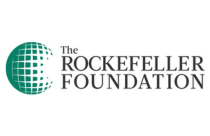
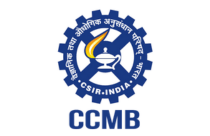
Research & Data
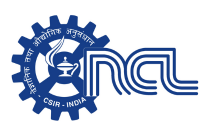
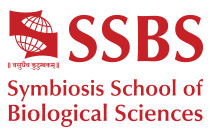
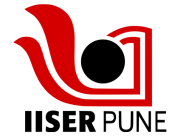
Design & Implementation
